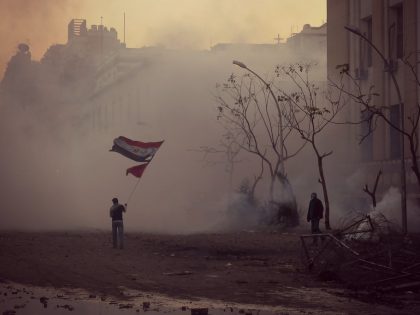
The French advantage
The largest delegation of foreign coaches at Afcon is French and 8 squads draw more players from the French leagues, than elsewhere.
508 Articles by:
Sean Jacobs, Founder-Editor of Africa is a Country, is on the faculty of The New School.

The largest delegation of foreign coaches at Afcon is French and 8 squads draw more players from the French leagues, than elsewhere.

The possibility of a new politics emerging from the new left social movements to reconfigure the nation state.

Nas gets caught up in a musical scandal in Angola. Not how he wanted to make a connection to the continent.

Throwback: What happened when Trevor Noah made his debut on American network TV.

How Cape Town is used by advertising firms as a cheaper, stand-in location for Euro-American locations.

The legendary Senegalese singer is running for president. Not everyone takes him seriously.

Most Nigerians don’t trust their government and overpaid public representatives with taxpayers’ money. So, they rose up.

Does South Africa’s ruling ANC still fight for the same values it championed 100 years ago?

We couldn’t resist including a post with some of the lowlights of 2011.

If people still bought full albums, we would suggest them buying these 10 from 2011 for their friends. Like we will.


Britain funded this charade with £31m, the European Union with €47m, and the UN with $110m. They have all raised concerns. But the international community does not favour Mr Tshisekedi. Instead it is ready to choose the option perceived as safest: supporting the status quo.
Source.

 Source.
Source.Director Franck Piasecki Poulsen embarks on a personal mission to uncover the origin of the minerals in his Nokia cell phone. Navigating the bureaucracy, corruption, and dangers of eastern Congo, he arrives at Bisie, one of the largest and most notorious illegal mines in the region, where armed groups maintain tight control and inhumane conditions, and child labor runs rampant. Determined to know if his cell phone is funding conflict in Congo, Poulsen works his way into Nokia's corporate offices, where he confronts executives about their mineral supply chain.
Here's the trailer: http://www.youtube.com/watch?v=wQhlLuBwOtE